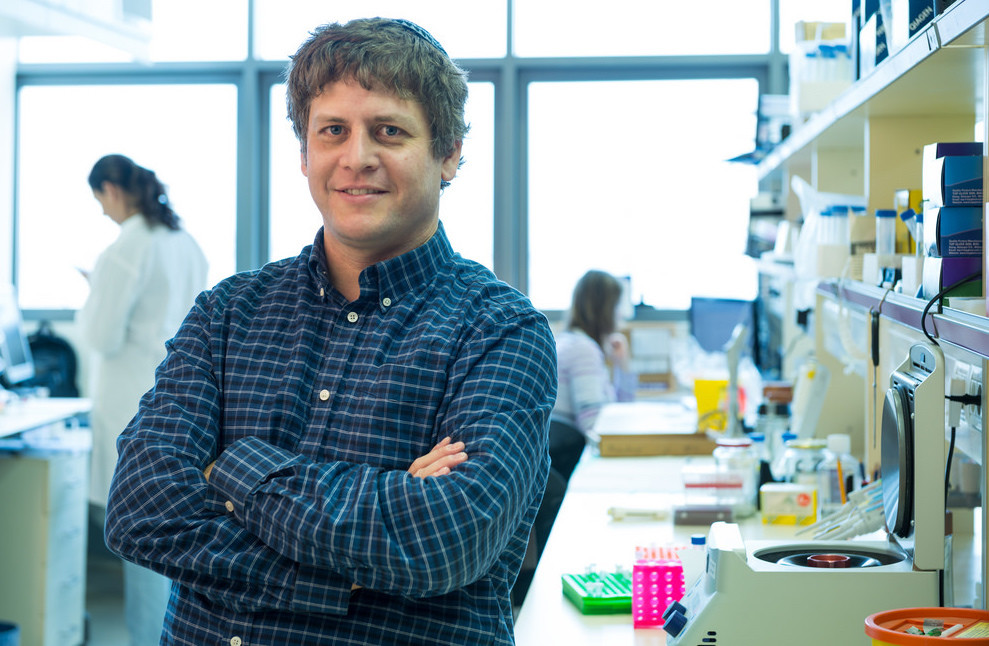Bar-Ilan, Harvard find immune system advance in cancer war
More than 200,000 Israelis are battling cancer, and each year an additional 29,000 are diagnosed. A group of senior researchers from Bar-Ilan University and Harvard Medical School has discovered a mechanism that allows the immune system to attack cancer cells better than ever before. The discovery shows promise for lung cancer and skin cancer (melanoma), according to a published this week in the medical journal, Nature.
The study was led by Prof. Nick Haining, of Harvard Medical School, and co-authored by Prof. Erez Levanon, doctoral student Ilana Buchumansky, of the Mina and Everard Goodman Faculty of Life Sciences at Bar-Ilan University, and an international team.
The focus of the study is a mechanism that routinely serves the cell by marking human virus-like genes in order to avoid identifying them as viruses. Now, Prof. Levanon, together with the Harvard team, has discovered that when inhibiting this mechanism, the immune system can be harnessed to fight cancer cells in a particularly efficient manner, and most effectively in lung cancer and melanoma.
“We found that if the mechanism is blocked, the immune system is much more sensitive. When the mechanism is deactivated, the immune system becomes much more aggressive against the tumor cells,” said Levanon.
In recent years, a new generation of cancer drugs has been developed which blocks proteins that inhibit immune activity against malignant tumors. These drugs have shown remarkable success in several tumor types.
This year’s Nobel Prize in Medicine was awarded to James Allison and Tasuku Honjo, who discovered the key genes of this mechanism. Despite this achievement, the current generation of drugs helps only a small number of patients, while most of the drugs fail to cause the immune system to attack the tumor. It is hoped that the new discovery will allow enhanced activity of the immune system to attack cancer cells.
A number of companies have already begun research to screen for drugs that will operate on the basis of this discovery.
Source: Bar-Illan University

 59.0°,
Mostly Cloudy
59.0°,
Mostly Cloudy 




